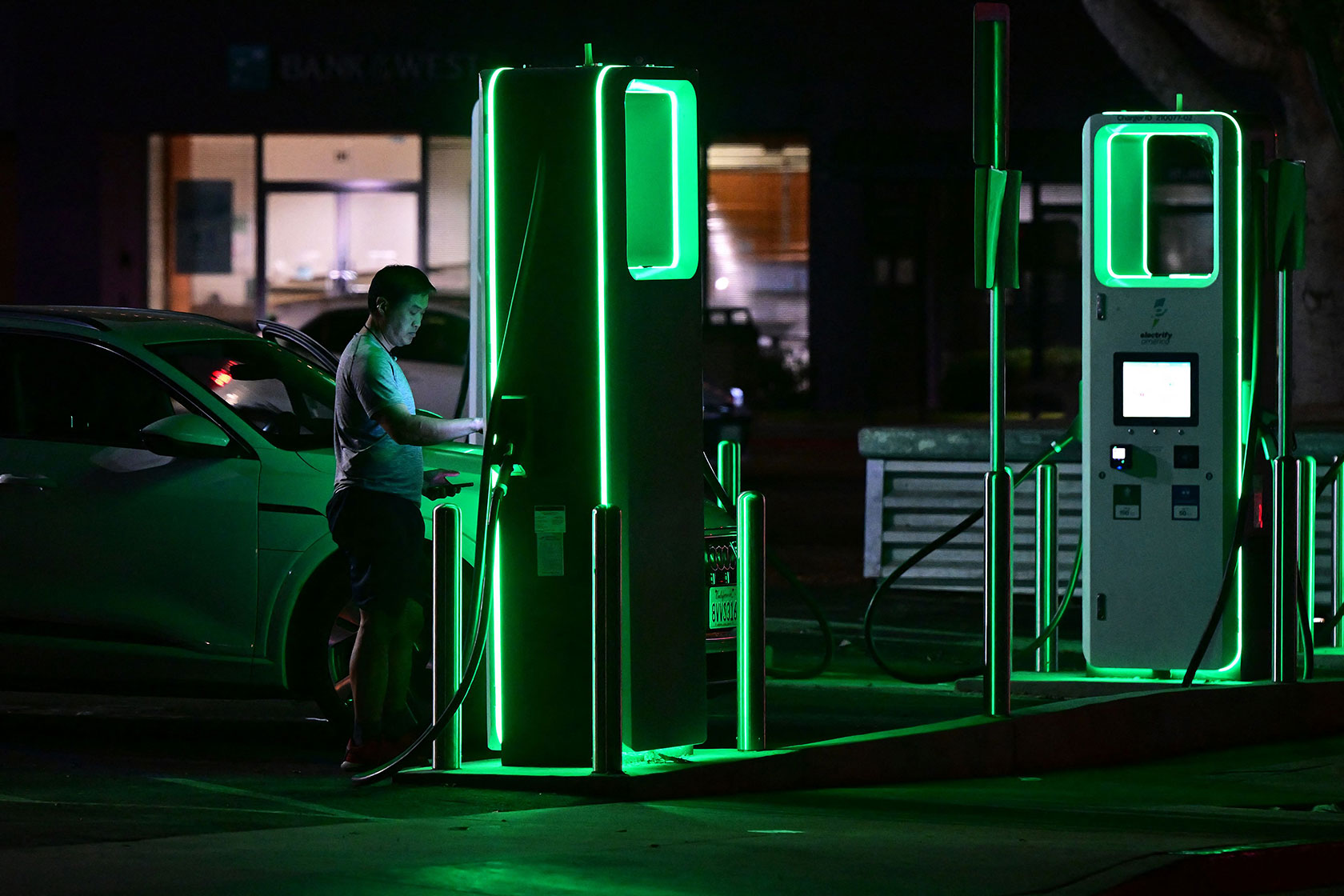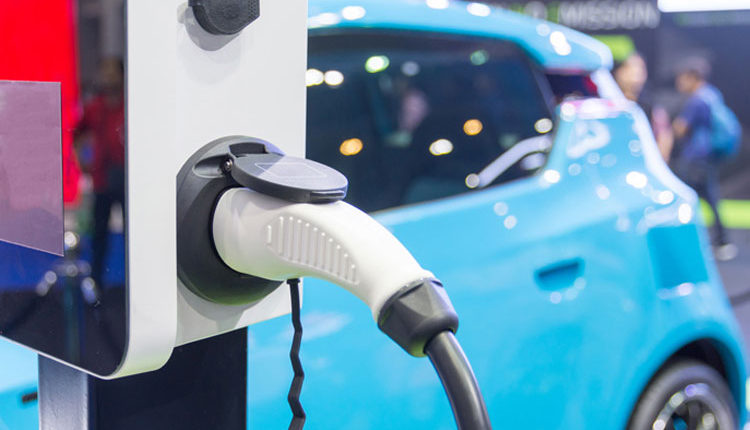The Most Reliable Sources to Buy EV Charging news and Stay Informed
New Advancement in EV Charging: How the Market Is EVolving to Fulfill Need
As the electric automobile (EV) market proceeds to broaden, the billing framework is undergoing significant changes to deal with the rising need. The ramifications of these advancements elevate important inquiries regarding the future of EV billing and its function in the wider energy community.
Development of Billing Facilities
The quick development of electric lorry (EV) billing framework is a critical element in assisting in the prevalent fostering of electrical movement. As federal governments, personal companies, and consumers increasingly identify the importance of lowering carbon discharges, investments in charging networks have actually surged. This framework growth is necessary to alleviate range stress and anxiety, making certain that EV individuals have hassle-free accessibility to billing stations.
Considerable improvements accountable terminal innovation and implementation techniques have actually arised. Urban locations are seeing a spreading of public billing terminals, while country areas are gradually being incorporated into the charging network. Moreover, partnerships in between automotive producers and billing suppliers are becoming more typical, promoting the establishment of extensive networks that boost individual experience and accessibility.
Additionally, the integration of sustainable energy sources into charging stations is getting energy, advertising sustainability in the EV ecological community. This change not only sustains environmental goals however also straightens with the rising demand for environment-friendly power solutions amongst customers.
Ultra-Fast Charging Technologies
Ultra-fast charging innovations represent a substantial jump onward in the EV billing landscape, enabling electrical automobiles to recharge in a fraction of the moment compared to typical billing approaches. These technologies commonly deliver power degrees exceeding 150 kW, with some systems getting to up to 350 kW or even more, dramatically lowering billing times to just 15-30 minutes for a significant fee.
Trick making it possible for technologies include developments in battery chemistry, power electronics, and thermal monitoring systems. For example, high-capacity batteries with enhanced thermal security enable faster charging without overheating. In addition, developments in billing framework, such as liquid-cooled wires and modular billing stations, help with reliable power transfer, improving the overall user experience
Significant vehicle manufacturers and innovation companies are proactively buying ultra-fast charging networks, acknowledging the crucial function they play in getting rid of range anxiety and accelerating the fostering of electric lorries. As these technologies become more widely readily available, the EV market is expected to witness considerable development, making electric flexibility a more attractive option for customers. Overall, ultra-fast charging technologies are pivotal fit the future of sustainable transport, leading the means for an extra comprehensive and effective charging environment.
Smart Grid Assimilation

Through demand response strategies, wise grid systems can readjust billing routines based on grid conditions and electrical power prices. During durations of high demand, charging can be postponed to off-peak hours, resulting in reduced costs for consumers and decreased strain on the grid. Additionally, vehicle-to-grid (V2G) innovations enable EVs to discharge energy back right into the grid, enhancing and giving ancillary services grid stability.
Assimilation with eco-friendly power sources additionally increases the sustainability of EV charging. By lining up billing tasks with durations of high solar or wind generation, wise grids promote a greener billing infrastructure. Inevitably, clever grid integration not only supports the growing demand for EVs but also adds to a more sustainable and durable energy future, positioning the market for long-lasting success.
Battery Developments
Amidst the fast advancement of electrical automobiles (EVs), battery advancements stand at the leading edge, driving advancements in sustainability, efficiency, and efficiency. As the need for EVs surges, manufacturers and researchers are concentrating on boosting battery innovations to deal with challenges such as array stress and anxiety and charging times.
Lithium-ion batteries stay the visit here most extensively used technology, yet new Visit This Link products and chemistries are arising to enhance energy thickness and long life. Solid-state batteries, for instance, guarantee greater energy storage space capacity and enhanced safety by replacing fluid electrolytes with solid ones. This change can significantly decrease the danger of fire and increase the life expectancy of batteries.
Furthermore, improvements in battery reusing procedures are important for sustainability. Firms are developing approaches to recuperate useful products like lithium, cobalt, and nickel from used batteries, advertising a circular economic situation and lowering ecological influence.

Global Billing Requirements

Efforts are underway to develop international charging criteria that assist in compatibility among different EV versions and billing terminals. Organizations such as the International Electrotechnical Commission (IEC) and the Culture of Automotive Engineers (SAE) are working collaboratively with automobile manufacturers and energy companies to produce extensive standards. EV Charging news. These criteria purpose to enhance the billing procedure, minimize the demand for multiple adapters, and improve customer experience
Furthermore, standardization can considerably bolster the expansion of the billing network, as it encourages investment by making facilities advancement extra reliable and foreseeable. As the EV market matures, a unified from this source method to charging standards will be crucial for guaranteeing that consumers can bill their vehicles easily and dependably, therefore supporting the wider change to sustainable transport.
Final Thought
The electric car charging sector is undergoing considerable makeover to resolve the rising need for sustainable transport. Improvements in billing framework, ultra-fast innovations, wise grid integration, and innovative battery remedies are pivotal in boosting customer experience and functional effectiveness. Additionally, the pursuit of global billing requirements is vital for making sure interoperability throughout different areas and systems. Jointly, these growths position the industry to sustain a wider adoption of electrical cars, inevitably adding to an extra lasting future.
Urban locations are seeing a proliferation of public billing stations, while rural regions are gradually being incorporated right into the charging network. Furthermore, growths in charging framework, such as liquid-cooled cables and modular billing terminals, help with reliable power transfer, improving the total customer experience.
Overall, ultra-fast billing innovations are critical in shaping the future of lasting transport, paving the method for a much more reliable and extensive billing ecological community. - EV Charging news
By aligning charging activities with durations of high solar or wind generation, smart grids promote a greener charging facilities.Initiatives are underway to establish worldwide charging requirements that assist in compatibility among different EV versions and charging terminals.